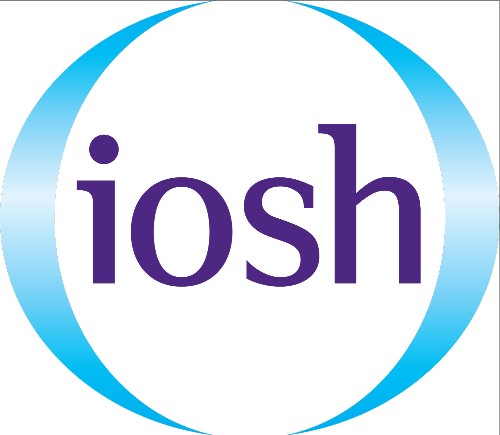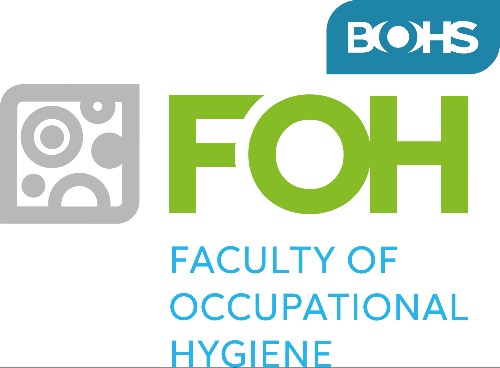Occupational Hygiene, MSc
This distance-learning Master’s in Occupational Hygiene covers all aspects of occupational hygiene, emphasising learning, research and essential critical thinking.
Occupational hygiene is concerned with the identification, evaluation and management of chemical, physical and biological agents arising from work. There's currently a huge demand from large multinational companies for trained occupational hygienists.
Our master's course covers all aspects of occupational hygiene, and you will complete a dissertation based on an occupational hygiene topic. You'll be able to apply for funding from the British Occupational Hygiene Society to cover any research costs involved.
Occupational hygienists are employed in a wide range of industries, including the petrochemical industry, manufacturing, mining, aero-industry, service sectors and the health sector. Many hygienists are also actively involved in research in a range of related fields.
This course is accredited by two professional bodies: the Institution of Occupational Safety and Health (IOSH) as well as the British Occupational Hygiene Society (BOHS).
School
Duration
- 2 years part-time
Start month
September; January
Fees information
For fee information related to this course, please see fees section below
What you should know about this course
What you will study
About the course team
Welcome to our Master's in Occupational Hygiene, which is delivered by distance learning, which enables applicants from a wide range of backgrounds to achieve Graduate IOSH status and gain access to this growing field of employment. The course leader is a Chartered Member of IOSH and he is a Fellow of the HEA.
Entry requirements
An undergraduate (honours) degree at 2:2, or above, in Science or Engineering and be currently working in the field of Occupational Hygiene, or in Health and Safety and wanting to move into Occupational Hygiene.
We expect applicants to have an understanding of relevant workplace risks.
Applicants without a degree that have professional qualifications or relevant professional experience may be considered.
For more information, use our contact form or call us on 020 8331 9000.
You can also read our admissions policy.
Further information about entry
- Applicants are assessed on an individual basis
- Occasionally a phone call or Skype conversation is required
- We expect applicants to have an understanding of relevant workplace risks
Available to overseas students?
Yes
Can I use Prior Learning?
Find out more on our Recognition of Prior Learning pages.
How you will learn
Learning experience
The course is available by distance learning, so learning takes place through self-study. We provide study guides and electronic sources via methods including e-mail, telephone and Skype. We'll also invite you to study schools in September and January to meet tutors and other students.
Class sizes
This course is offered by distance learning and the intake can vary.
Independent learning
We encourage you to apply for membership with IOSH and to attend monthly meetings at the branch closest to where you live.
Overall workload
As the course is part-time, you should expect the workload to be similar to a part -time job (approx. 18-20 hours per week in total).
The total time commitment works as follows: for every 10 credits, you are expected to study for 100 hours. A 20-credit module represents around 200 study hours.
Assessment
On this course, you are assessed by coursework. Some modules may also include practice assessments, which help you to monitor progress and make continual improvement.
Each year has two formal summative assessments which count towards your final grade. These take place approximately 6 and 12 weeks into term.
Feedback summary
We aim to give feedback on assignments within 15 working days.
Dates and timetables
The academic year runs from September to June.
Full teaching timetables are not usually available until term has started. For any queries, please use our contact form.
Fees and funding
University is a great investment in your future. English-domiciled graduate annual salaries were £10,500 more than non-graduates in 2023 - and the UK Government projects that 88% of new jobs by 2035 will be at graduate level.
(Source: DfE Graduate labour market statistics: 2023/DfE Labour market and skills projections: 2020 to 2035).
| Cohort | Full time | Part time | Distance learning |
|---|---|---|---|
| Home | N/A | TBC | £1,887 per 30 credits |
| International | N/A | N/A | £1,887 per 30 credits |
Scholarships and bursaries
We offer a wide range of financial help including scholarships and bursaries.
The Greenwich Bursary
This bursary is worth £700 for new undergraduate students with a low household income, entering Year 0 or 1 who meet the eligibility criteria.
EU Bursary
Following the UK's departure from the European Union, we are supporting new EU students by offering a substantial fee-reduction for studying.
Financial support
We want your time at university to be enjoyable, rewarding, and free of unnecessary stress, so planning your finances before you come to university can help to reduce financial concerns. We can offer advice on living costs and budgeting, as well as on awards, allowances and loans.
Careers and placements
What sort of careers do graduates pursue?
Nearly all students on our course do so to improve on their current role (on joining) and as a tool to change careers. Both public and private sectors are in need of highly qualified professional people and so this course brings with it good opportunity.
Do you provide employability services?
The School of Design has an Employability Officer for students to consult about specific opportunities relevant to the course. They work closely with professionals in industry to ensure you are well-prepared for the workplace and have already begun to build your professional network by the time you graduate.
The central Employability and Careers Service also provides support for students preparing to apply for placements and graduate roles, such as CV clinics, mock interviews and employability skills workshops.
Support and advice
Academic skills and study support
We want you to make the most of your time with us. You can access study skills support through your tutor, our subject librarians, and our online academic skills centre.
Where appropriate, we provide support in academic English and mathematics. If you need to use particular IT packages for a specific module, we provide training for this.
Support from the department
All students on Built Environment courses at the School of Design get access to Microsoft Project and RICS BCIS online. Additionally, joining societies such as RICS will help you network and can build skills and present new opportunities. Furthermore, the School of Design provides pastoral support throughout your studies with us. Students have a personal tutor and access to training in study skills, dissertation preparation, methods and ethics and have access to advice on employability and careers.
Not quite what you were looking for?
We've got plenty of other courses for you to choose from. Browse our postgraduate courses or check our related courses below.....
Construction at the University of Greenwich
Our range of courses, some of which are professionally accredited, will give you the skills and knowledge you need to start, or develop, your career.
Visit our construction degrees page.
Studying engineering at the University of Greenwich
Gain a solid foundation in all aspects of engineering in specialist labs on our Medway Campus and choose the area you want to specialise in later in your studies.
Visit our engineering degrees page.
Engineering subjects
Chemical engineering degrees
Study in specialist laboratory facilities at our Medway Campus where you’ll gain the skills and knowledge you need to become a professional chemical engineer, using the latest equipment and simulation software.
Civil engineering degrees
Discover pioneering approaches in specialist laboratory facilities on our Medway Campus, where you will use the latest surveying equipment and learn how to apply them in real-world scenarios.
Computer engineering degrees
These pioneering degrees combine technical engineering with an impressive depth of computer theory. You'll gain the specialist knowledge and skills needed to work in this cutting-edge industry.
Construction degrees
Our range of courses, some of which are professionally accredited, will give you the skills and knowledge you need to start, or develop, your career.
Electrical and electronic engineering degrees
Learn how to make the world a better, more connected place. You will study in specialist lab facilities on our Medway Campus and benefit from our close ties with engineering companies such as BAE Systems and Ford.
Engineering management degrees
Combine solid technical skills in engineering with business enterprise management skills. Studying on our Medway Campus, you will benefit from specialist and integrated lab facilities.
Engineering technology degrees
Learn how to apply engineering to a range of real-world problems. Studying on our Medway Campus, you will develop the skills and knowledge you need to drive changes in product design using the latest technological advances.
Mechanical engineering degrees
This is one of the broadest areas of engineering. You will learn about the design, construction and operation of mechanical systems. Studying at our Medway Campus, you’ll benefit from our strong links with local industry.
Mode of study
Select from the dropdown below.
| Course level | |
| UCAS code | |
| Duration | |
| Location |



